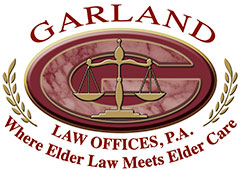“The distribution of some of our assets can be governed by contracts. Examples of these contracts include life insurance, investment accounts, bank accounts, and trusts.”
Without proper planning, there is no determining who inherits your property after you die. Everything, from your home to your car, to your bank accounts, and down to small personal possessions could be wrongly distributed. Your ext-of-kin may not be who you think. These are just a few reasons why having an estate plan is so important.
An estate plan avoids a “default” distribution of your possessions, says the recent article “Asset distribution when we die” from LimaOhio.com.
For example, if you name a nephew as a beneficiary on your life insurance policy, the life insurance company has a legal responsibility to pay your nephew when you die. In turn, your nephew will be required to provide your death certificate as well as proof he is your nephew. This means: he is your named beneficiary and; this is an asset governed by contract.
Assets that are not governed by contract are known as “intestate probate.” This means that non-contracted assets are directed by the state.
In the event that there is a last will, but missing assets, the executor is then put in charge. The executor is overseen by a probate court judge, who reviews the will. After reviewal, the judge must give approval before assets are distributed.
Unfortunately, probate court involvement comes with a price and this is not always a fast process. It is always faster, and less costly, to put all of your assets into a contract, like a trust. Or, at least, have a beneficiary named to the asset.
Succinctly, if a will only provides limited instructions, the state’s law will fill in the gaps. Therefore, any assets that pass-through contracts will be distributed directly, assets noted in the will go through probate and anything else will go usually to the next of kin.
Your best course of action is to have an estate attorney review all of your assets, determine who you want to receive your property, and make up a plan to make this happen in a smooth, tax-efficient manner.
Reference: LimaOhio.com (Aug. 22, 2020) “Asset distribution when we die”
